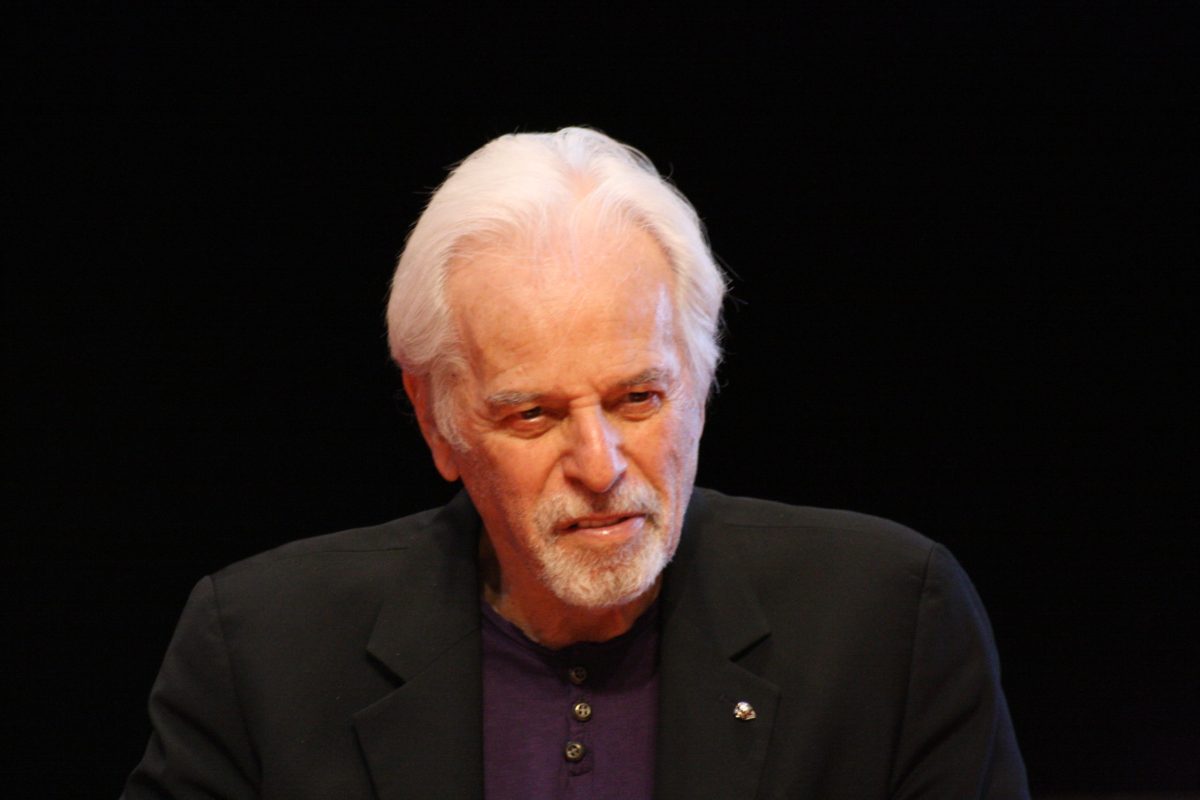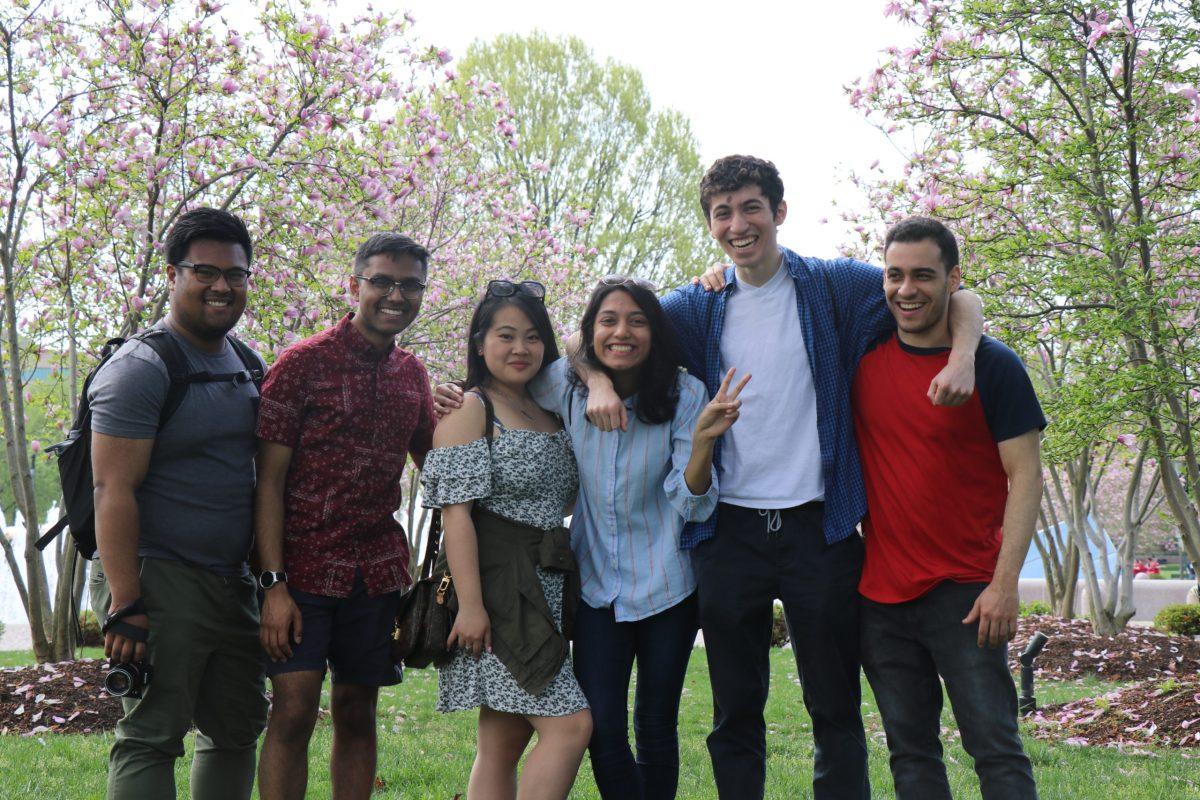From a very small age, we all wanted to know the “why” to everything. As individuals working together to perform the greatest public service for our campus, we struggle to answer your “whys”. There is always one “why” we, The Vector Executive Board, can answer for you without fail, but the rest are up to you.
We were on the Newark Liberty Airport tarmac clutching heavy Nikon cameras with our freezing fingers. Just a few weeks before, I sent a series of earnest emails to the White House Press Office asking for a chance for a small tech school newspaper to cover a major national event alongside major national networks such as NPR and NBC. To my surprise and disbelief, we were granted passes and I found myself dangerously skipping out on Freshman Seminar to rush to the airport with that year’s managing editor.
As I waited in the top row of bleachers for Air Force One to land right before our eyes, I thought back to just a few weeks earlier when I attended a journalism conference in Washington DC hosted by the College Media Association where I realized my involvement with Vector would go beyond my initial goal of “keeping up with writing regularly”. What I participated in as a choiceless hobby (there aren’t many writing communities at NJIT), others pursued as a lifelong passion; they risked their lives in its name.
I believe my bond was not fireproof. Somewhere between DC and POTUS’s visit, there ignited a new passion for writing the truth above all else. Weekly assignments are no longer about writing skills. Now I see myself performing the greatest public service: informing society as a reliable and trusted source (even if this society is as small as this campus). We provide honest and supported information, so that our readers can formulate informed and educated opinions. Still there are limitations to our job. One questions we can never truly answer is “why?”
For example, a question many students bring up on a daily in Humanities and STS classes, if NJIT and other universities are trying so hard to encourage women to not only pursue STEAM degrees but also keep up with them WHY do we find that less women are graduating with STEM degrees in 2014 than 2004, according to research by Clearinghouse? Countless precollege programs focus on inviting young adults to experience simple lessons and projects geared to birth a new interest in STEAM careers among the area’s youth.
If NJIT is working towards attracting women to pursue STEAM degrees, why has the average percent of females withdrawing from CS100 almost doubled from the 2010-2011 to the 2015-2016 academic year? The greatest complaint among females has usually been discomfort in the academic and professional setting due to objectification and gender inequality. Instead of teaching women to toughen up, perhaps men should be educated on the importance of understanding and promoting gender equality.
The Diversity Center at our university diligently does just that. In fact, there are several programs scheduled during the month of October focused on busting gender role myths and educating the student community on “The Fault in Our Gender Roles” with a program of the same name. The resources and education are available, but the third person point of view says women attend these events for empowerment while men avoid these events in fear of what they see as emasculation.
[REDACTED], a fifth-year business major, commented disapprovingly on the perpetrators of gender equality who choose not to attend these educational events, “It’s all about the individual. I think the point of these types of programs is to be set up in an unbiased manner so that anyone can attend in a judgment-free space. If people choose not to go, then that’s on them. There is always going to be someone who doesn’t approve of the changes in society today, but that doesn’t mean there is anything wrong with the programs. Everything falls on the individual.”
Mayo Adedeji, another student, commented on the individual’s responsibility to educate themselves not only academically but also socially in preparation for the professional workplace environment most STEM majors enter after college, “I, personally, like learning about topics such as gender equality, but I can see why a lot of men wouldn’t. They might feel that they are being prosecuted for things they may or may not have done directly or indirectly. I don’t think anyone would want to put themselves in that position, but I think it’s also everyone’s duty to educate themselves on such topics regardless of the cost.”
Student support for such education is strong. In fact, recent surveys by the Diversity Center place gender equality as one of the top three topics that students at NJIT would like to learn more about. Even after countless programs, the effect of traditional gender roles runs rampant and discourages many female STEM majors from continuing in their field. In a study by Cornell University and the University of Texas – Austin, researchers found that more than 50% of women in STEM fields will leave for other occupations after their first decade there.
So back to the first question, even after all of this effort on a campus and national level WHY is there a smaller ratio of women graduating with STEM degrees now than a decade ago? Even with sufficient information on the table, this is not a question we can answer for you. Instead, it’s your civic duty to use this information, seek out further questions, listen to others’ opinions, formulate an opinion you truly believe in, and most importantly act on this opinion.
Realizing our job can only go so far is something I learned very recently. I felt as if my work was always incomplete and insufficient, but really that was just me slacking in fulfilling my civic duty. In my unique position as a college journalist, I am so focused on providing an objective point of view that I sometimes forget I can play the reader, too. In the recent past, I have learned to juggle these two roles and become satisfied with the actions I have pursued as a result of them.
For all of the whys we cannot answer, I can leave you with one we can answer. Why do we volunteer to go to the lengths that we do to do what we do? In the words of civil rights activist and educator Deray Mckesson, “Love is the why.”





























